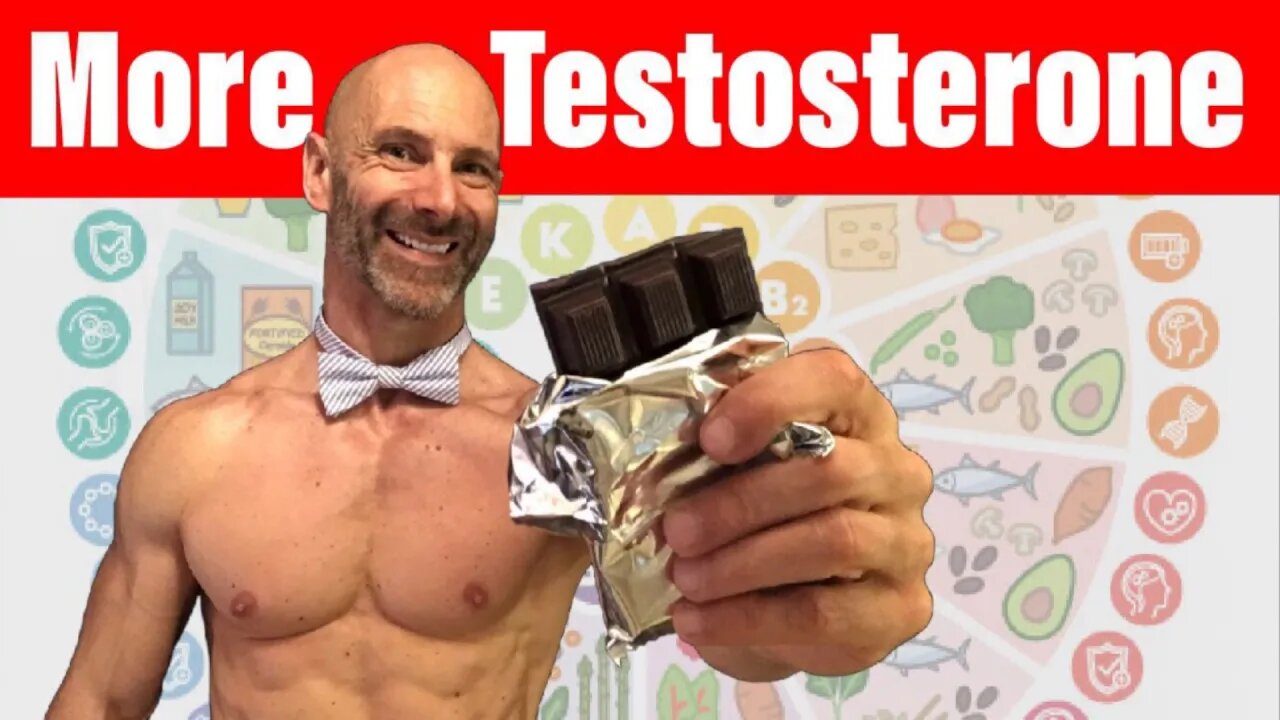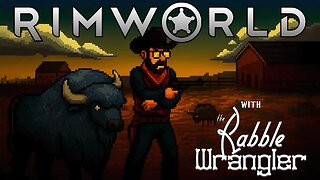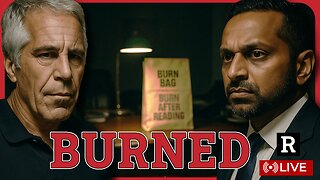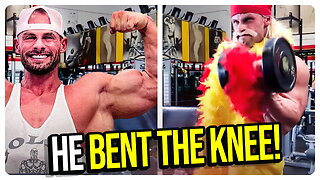Premium Only Content

Fix Low Testosterone Levels With Food to Gain New Muscle
Fix low testosterone levels with food to gain new muscle
Low testosterone can affect our ability to build muscle and our youthful vitality. Just because we are in our fifties doesn’t mean we can’t have vitality! We can get fit and build muscle at any age.
Today we are going to focus on the types of foods we need to eat to fix our testosterone levels. Now two of the biggest testosterone killers are a lack of sleep and being overweight.
When we want to lose weight it is important to still be providing the body with all the nutrition it needs even though we are in a calorie deficit.
Check your testosterone levels from home. Just click this link http://trylgc.com/laurence and receive 20% off with code: LAURENCE20
LetsGetChecked has numerous other health test you can take for sexual health, Diabetes, Colon, Liver, Prostate PSA and many more. Discreet and private.
If you are interested in losing body fat and adding muscle, please email me at 1shark1bite@gmail.com for information on my personal training services.
Facebook; https://www.facebook.com/Fit-and-50-548844435514900/
My Amazon page link; https://www.amazon.com/shop/fitand50
My Affiliate link to Lebert for their Equalizer bars and more; http://www.easywebautomation.com/app/?af=1679568 and use the discount code LFI20 you will receive 20 dollars off your purchase.
Fix Low Testosterone Levels With Food to Gain New Muscle
One of the vitamins that plays a role in keeping our testosterone high is vitamin D. The daily recommended intake is around 800 IU/day. Now in the studies I read they had the amount of vitamin D the test subjects were taking to increase their testosterone at 3332 IU/day. Which is substantially more than the daily recommendation. Although still within what is considered a safe limit for consumption.
The best way to get vitamin D is with sunlight but unfortunately it is difficult to give an exact amount of required sunlight to get in all the vitamin D you need, as a lot of variables come into play like the amount of skin exposed, skin pigmentation, time of day, how close you live to the equator and if it is cloudy or not. But it can’t be emphasized enough that we need to spend time outside on a regular bases and if you spend a lot of time outdoors you can easily get all your required vitamin D.
Foods that contain vitamin D are fish with mackerel and salmon containing the most. Other foods like eggs and mushrooms also contain small amounts.
If your someone who doesn’t spend much time outdoors then you might want to consider a vitamin D supplement. The vitamin D council recommends taking vitamin D3 over D2 as that is the type our body produces in response to sun exposure.
Zinc deficiency has been well documented as causing low Testosterone in both young and older men. The daily recommend allowance for zinc is 11mg for men and 8 for women. But of course in the studies they used more, with the test subjects taking 30 mg of zinc. It is important to note here you can take too much zinc and get negative side effects. If you are taking over 40 mg a day you run the risk of zinc toxicity.
Just 6 medium sized oysters will give you 32 mg of zinc with all shell fish being a good source of zinc. An 8 oz steak contains a little over 10 mg of zinc. All meats does contain some zinc as well.
If you eat a well rounded diet based on whole foods your probably not zinc deficient, but if you are a vegetarian or vegan your at a higher risk of zinc deficiency. The best non meat sources of zinc are beans and in particular white beans as they have 2.9 mg of zinc in a cup. Wild rice is also fairly high with 2.2 mg per 1 cup of cooked rice. The final one I want to mention is nuts with pine nuts and cashew leading the pack.
Another mineral that has been shown to increase both free and total testosterone is magnesium. A study Done in 2010 found the magnesium increased testosterone in both sedentary and hard training, tae kwon do athletes.
In this study they supplemented with 10 mg of magnesium for every kg of body weight. This compares with the daily recommend intake of 420 mg for men and 320 mg for women. Like zinc it can be toxic at a high enough level, but it would be tough to reach that, especially through whole natural foods as it is 5,000 mg per day.
70 to 85% cacao Dark chocolate contains 230 mg in a 101 gram bar. Quinoa and black beans are also a great source both being around 120 mg per cup. Once again nuts like almonds and cashews do well on this list. Dark leafy greens also place high.
Zinc in healthy young and older men https://www.ncbi.nlm.nih.gov/pubmed/8875519
Magnesium on sedentary people and athletes file:///C:/Users/Sharkbite/Downloads/EffectsofMagnesiumSupplementationonTestosterone%20(1).pdf
-
 6:16
6:16
Fit and 50
1 year ago $0.06 earnedMike Mentzer’s High-Intensity Training (Brilliance or Madness?)
1.43K5 -
 1:00:08
1:00:08
The Officer Tatum
4 hours agoLIVE: Left CANCELS Their Own, All White Town, NYC Shooter Update + MORE | EP 146
9.93K16 -
 LIVE
LIVE
The Rabble Wrangler
15 hours agoRimWorld with The Best in the West!
68 watching -
 LIVE
LIVE
MissesMaam
4 hours agoVariety Stream💚✨
89 watching -
 LIVE
LIVE
blackfox87
1 hour agoHot Droppin! | PREMIUM CREATOR | #DisabledVeteran
50 watching -
 1:23:27
1:23:27
Redacted News
3 hours agoBREAKING! FBI DIRECTOR DROPS BOMBSHELL, REVEALS HIDDEN 'BURN BAGS' AND MISSING EPSTEIN FOOTAGE
128K138 -
 1:21:25
1:21:25
vivafrei
5 hours agoJoey Swoll CANCELS Himself! Oprah Closing Roads for Tsunami Evacuees? Canada Can't Find Criminals?
77.6K29 -
 1:47:35
1:47:35
Right Side Broadcasting Network
7 hours agoLIVE REPLAY: President Trump Delivers Remarks on Making Health Technology Great Again - 7/30/25
65.6K24 -
 38:23
38:23
Members Club
3 hours ago $0.75 earnedShooter Strikes NYC, WNBA Wig Meltdown, and Sweeney’s Jeans Go Viral - MC05
20.5K5 -
 33:41
33:41
The Finance Hub
6 hours ago $1.90 earnedBREAKING: NANCY PELOSI JUST GOT HIT WITH A MAJOR BOMBSHELL!!!
14.3K7